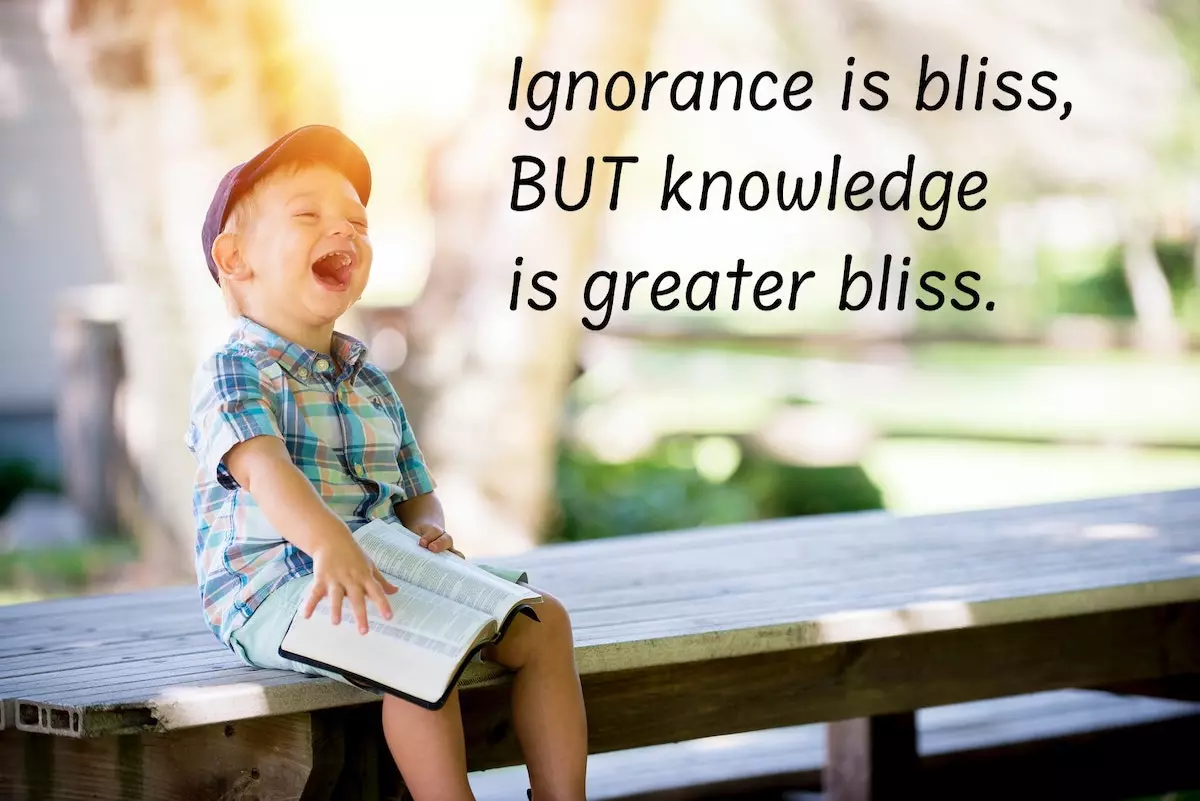Blogging is a knowledge-intensive activity. It suits me as I love to gain and share knowledge. Unsurprisingly, then, today’s topic is a pet subject of mine. Read on to find out how being knowledgeable will benefit you in more ways than one.
Benjamin Franklin said, ‘An investment in knowledge pays the best interest.’ It most definitely does. More than ever, an individual needs to be knowledgeable to succeed in today’s knowledge economy.
This article covers:
1. Benefits of Being Knowledgeable
We have often been told that ignorance is bliss. The expression means that if we are unaware of an unpleasant fact or situation, we cannot be troubled by it. Sure, obliviousness to certain facts does spare us much anxiety and distress, but sometimes, knowledge is greater bliss.
Knowledge Protects You
Ignorance puts you in danger while knowledge keeps you out of harm’s way.
If you have basic knowledge of fulminology, i.e. the science of lightning, you will know that contrary to the proverb ‘lightning never strikes twice’, lightning can and often does strike the same place twice, especially if it is a tall and isolated object. This knowledge could possibly save your life during a storm.
If you have read about the numerous banking-related phishing scams in the news, you will know that you should never disclose your one-time password to anyone. This knowledge will lower your risk of becoming the next scam victim.
If you have some legal knowledge, you will know that that ignorance is no defence in a court of law. Ignorantia legis neminem excusat (Latin for ‘ignorance of law excuses no one’) is a legal principle maintaining that a person who is unaware of a law may not escape liability for breaching that law merely by being unaware of its content. Thus, if you violate a law, e.g. caught selling e-cigarettes in Singapore, you cannot defend your actions by arguing that you did not know they were illegal.
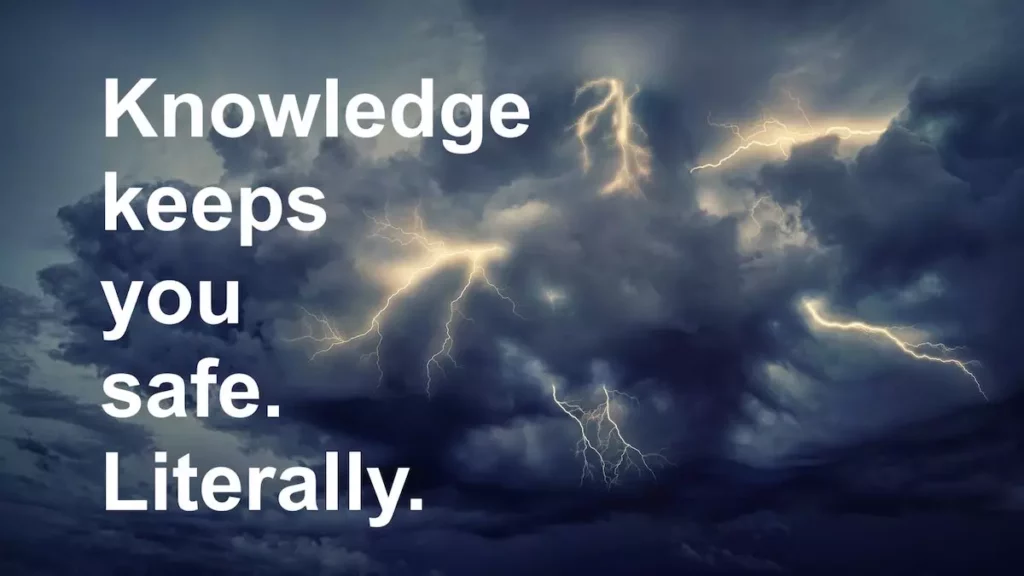
Knowledge Helps You Make Well-informed Decisions
Well-informed decisions are not always the right decisions, but they do tend to lower your chances of failure by A LOT. Conversely, an uninformed or ill-informed decision often has disastrous consequences.
As a case in point, let’s look at the situation of someone investing in cryptocurrency. Upon hearing that many people had made tons of money in the crypto market, Pete decided to jump on the bandwagon at the beginning of 2022. He invested all his hard-earned money in Tera LUNA even though he knew nothing much about it. According to his best buddy, it was safe. Fast-forward to mid-May 2022: Terra LUNA crashed from $120 to $0.02, a 99.9 per cent correction. Pete’s entire life savings was wiped out in a matter of hours and his best buddy is now his arch-enemy.
I hate to say this but Pete only has himself to blame. He should have taken a leaf out of Warren Buffet’s book and only invests in businesses he understands (there’s a reason why Buffett is so successful). He should have done his homework on the risks and rewards of investing in cryptocurrency.
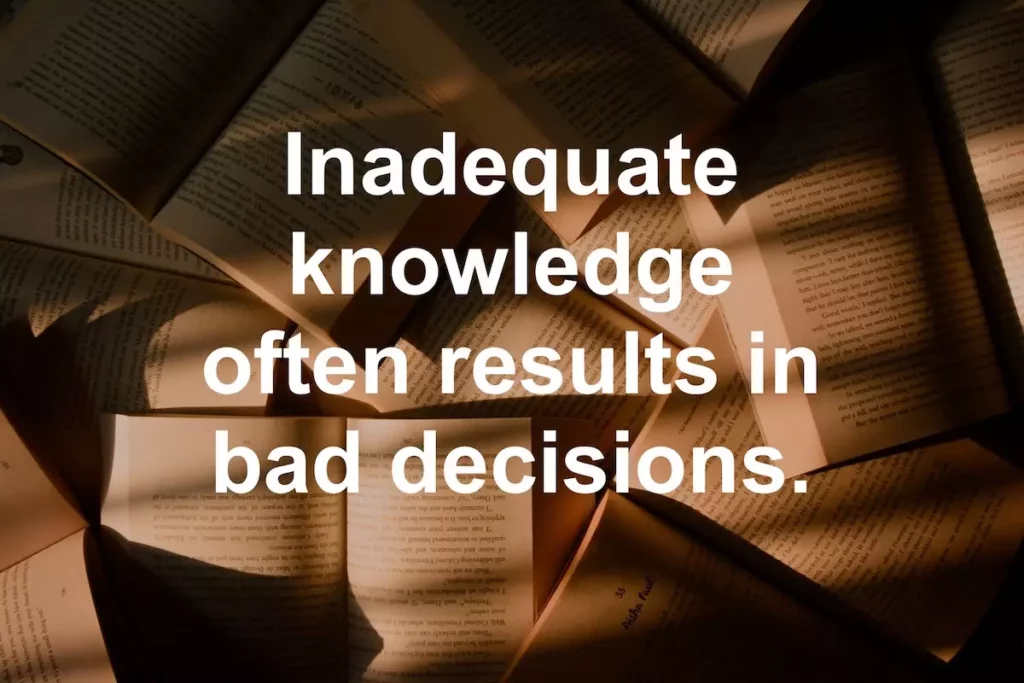
Knowledge Increases Your Confidence
Knowledge brings about confidence because it reflects our competence. Imagine yourself being involved in a group project. If you have a high level of knowledge, you will naturally feel very poise and confident. But if you are clueless as hell, you will likely feel insecure. You know you lack the required knowledge to carry out the assigned tasks and you fear that your peers will realise just how incompetent you are. And the more you fear, the more your confidence erodes.
Fear often stems from ignorance. As human beings, we are wired to be afraid of things or situations that we have no knowledge or information of. Take investing for example. Many people are afraid of putting money in the stock market due to knowledge deficit. Granted, stocks investing comes with some degree of risk and you can possibly lose all your money (like Pete). Nevertheless, if you take the time and effort to acquire investment knowledge, e.g. read books, take a course or speak to a financial advisor, you can manage the risk to get the most out of your investment. With knowledge comes understanding, and with understanding comes the confidence to face the unknown.
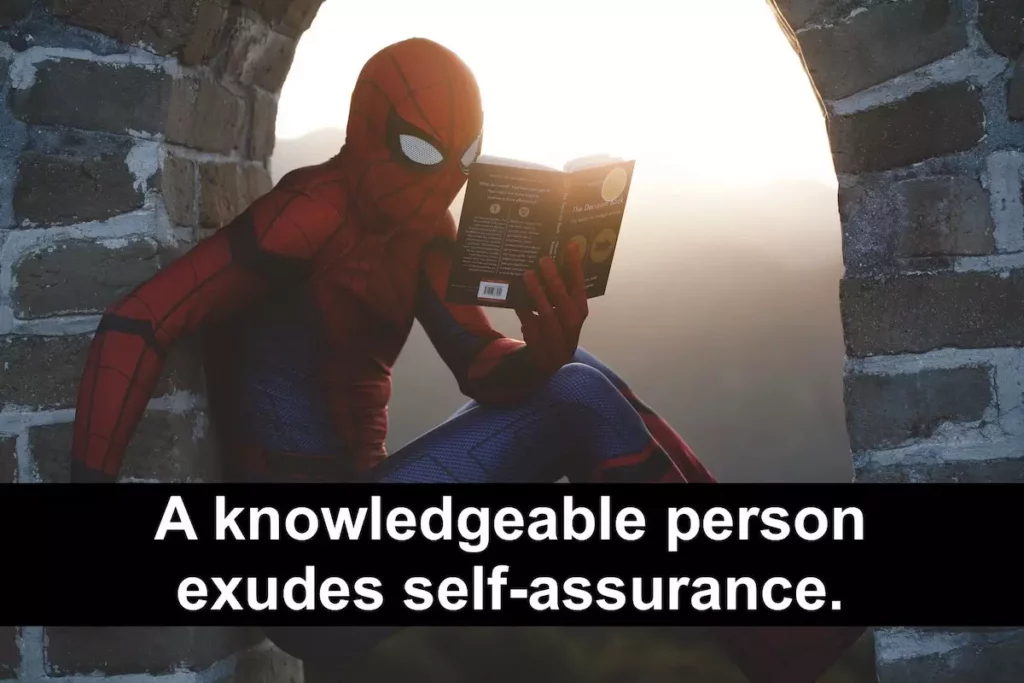
Knowledge Impresses Others
If someone were to call you an ignorant fool, I highly doubt you will interpret it as a compliment. Being ignorant is perceived as a flaw and all of us would like to consider and present ourselves as well-informed individuals. Society admires people who can talk knowledgeably about various subjects or can do certain things adeptly. Yes, talent probably plays a part, but more often than not, these people have devoted countless hours, days, weeks, months and years of their lives to increase their knowledge and hone their skills.
Being ignorant is perceived as a flaw and all of us would like to consider and present ourselves as well-informed individuals.
Although they are not the same thing, knowledge is commonly associated with intelligence. People with vast general knowledge just seem so impressive. They are always able to provide a wider perspective on important or complex issues. They can always converse interestingly with people from all walks of life.
In contrast, an ignorant person often has nothing much to share. Well, to quote Abraham Lincoln, ‘Better to remain silent and be thought a fool than to speak out and remove all doubt.’
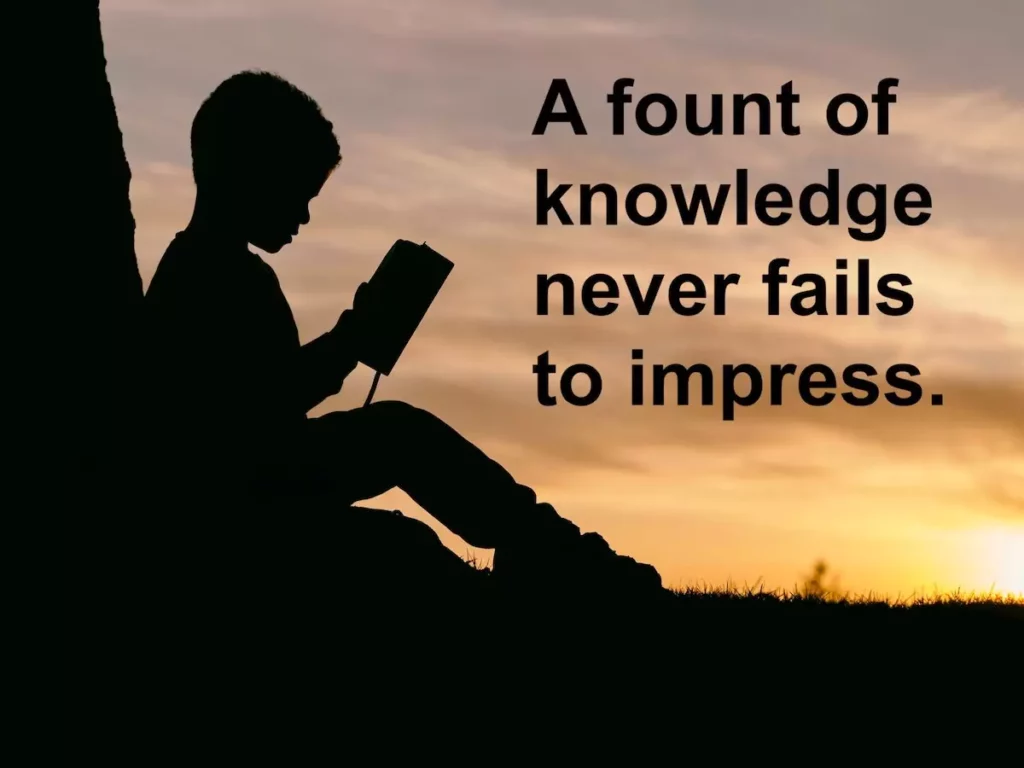
Knowledge Creates Self-awareness and Helps You Achieve Higher Levels of Success
The worst form of ignorance is being ignorant and not realising it. The lack of self-knowledge means that such a person is unaware of his inadequacies and therefore has a propensity to overestimate his abilities. Basically, he thinks he is better than he really is.
Confidence without knowledge is misguided and it will almost invariably lead to failure. One is likely to overpromise and underdeliver. When he fails to perform certain tasks well, he may have a hard time understanding why he fared badly. Everyone sees his shortcomings except himself.
Confidence without knowledge is also dangerous. If one is under the delusion that he knows something even though he really doesn’t, he cannot assess the risk of that particular situation. For instance, he might engage in an extreme sport without proper training simply because he thinks he can. Two words: fatal miscalculation.
According to Aristotle, ’Knowing yourself is the beginning of all wisdom.’ When you are blissfully unaware of your limitations, achieving success is difficult because you are standing in your own way. You are a prisoner of your own ignorance. This is detrimental to your development as it makes harder for you to better yourself or achieve success.
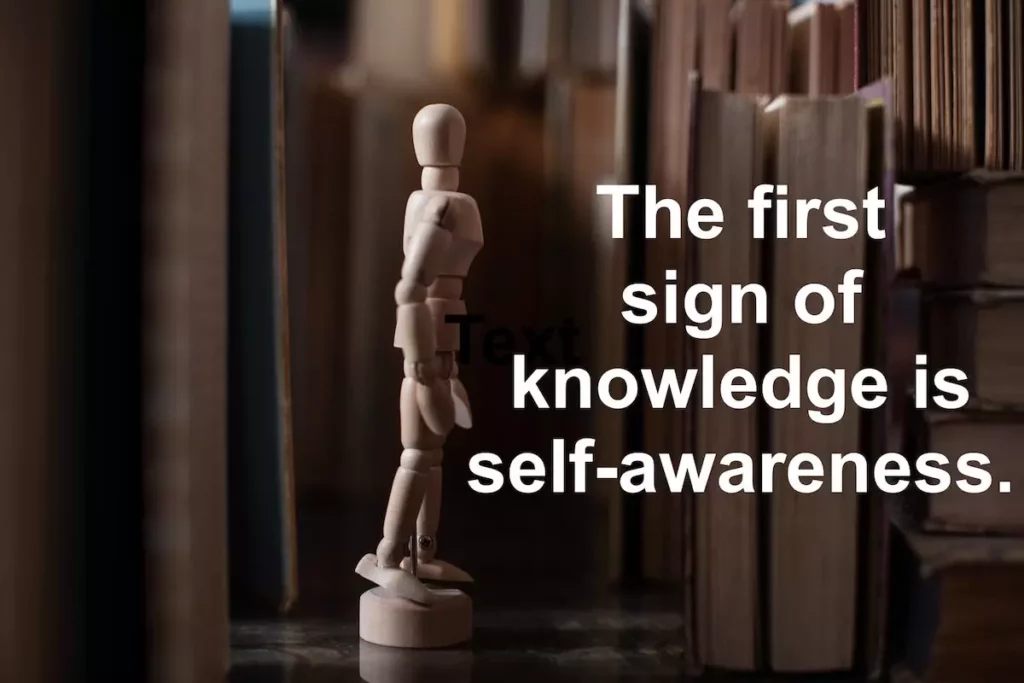
2. Why Gaining Knowledge is Painful
I have frequently been told that I am knowledgeable (not bragging). I attribute it to reading widely. Yes, I love to read. On average, I spend about three hours a day engaging in this hobby of mine (even before my retirement). When I go on vacation, I must always bring along a good book. It’s as important as packing my toiletries.
I think everyone will agree that reading is an excellent way to boost one’s general knowledge. However, when I try to encourage youngsters like my nephew and niece to read, they tell me that they are sick of books. They equate reading with studying; it’s a painful activity to them. After spending a decade running an education business, I have come to realise that this is the norm rather than the exception.
I often think to myself that the greatest enemy of knowledge is our education system. It is one of the ironies of life. The true purpose of education is to impart knowledge, NOT to test if someone has the memory of an elephant. So why are we making students memorise and regurgitate a whole bunch of facts and figures for exams? Isn’t that the job of a computer? And please name me a company that expects its employees to perform all tasks based on memory.
Rote-learning is NOT learning. It is retention without understanding. It does not cultivate an enquiring mind. It kills the joy of knowledge acquisition. And we wonder why so many kids are unmotivated and bored silly in school! Although it saddens me, I can understand why many people are not interested in reading to broaden their horizons. Years of cramming in every detail that could possibly be an exam question have far-reaching repercussions.
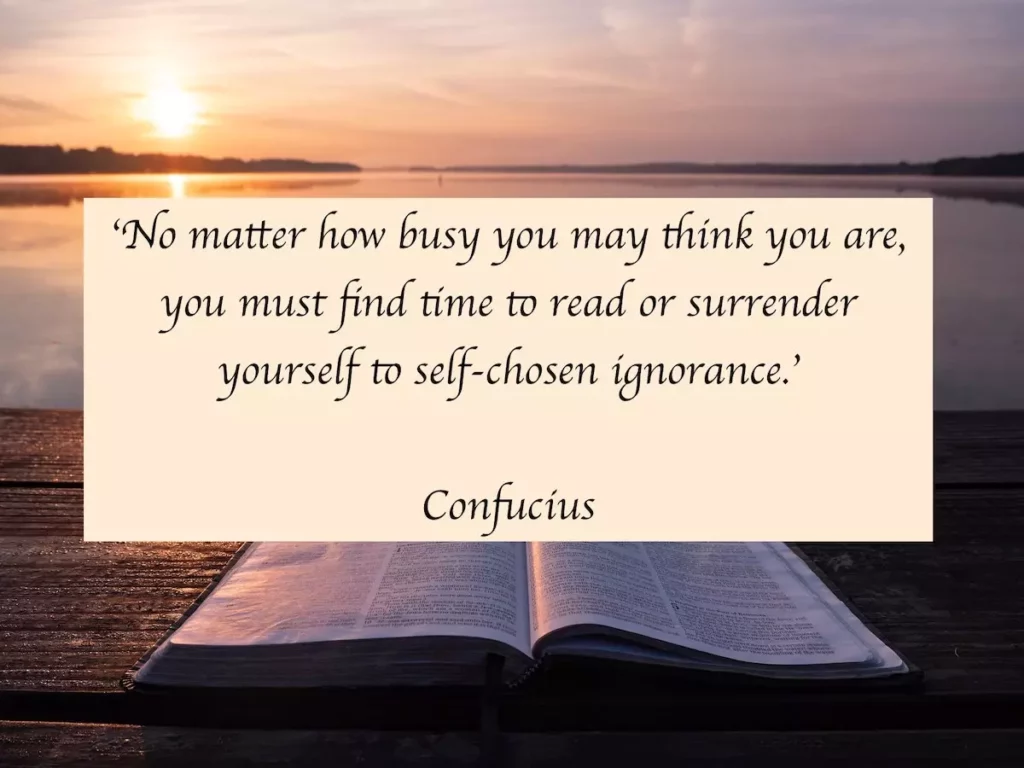
3. Everyone Can Be Knowledgeable
If you think your general knowledge is inadequate, it is not too late to free yourself from the fetters of ignorance. Being knowledgeable is a quality that everyone can possess. It just takes curiosity and a genuine interest to learn and discover new things. When you are curious and interested to find out what you do not know, you will naturally invest the time.
If reading is not your cup of tea, you can gain knowledge through other means.
- You can actively seek answers on the Internet, aka Professor Google.
- You can watch news, documentaries and YouTube videos.
- You can tune in to podcast.
- You can attend courses and learn from the experts.
- You can, most of all, keep your ears open and listen because knowledge echoes everywhere.
In a knowledge economy, ideas are truly the most valuable of currencies. To generate great ideas that are relevant and beneficial to society, we need to first have some knowledge and understanding of the world we live in. At the very least, we owe it to ourselves to acquire knowledge, which will ultimately help us form our own opinions about the world.
I shall leave you to expand your mind.
More about life: Why It’s Important to Follow Your Dream | 10 Life Lessons from Clash of Clans | Why It’s Important to Enjoy Boredom | Taming Superstitious Beliefs: Is Bad Luck Just Coincidence?

